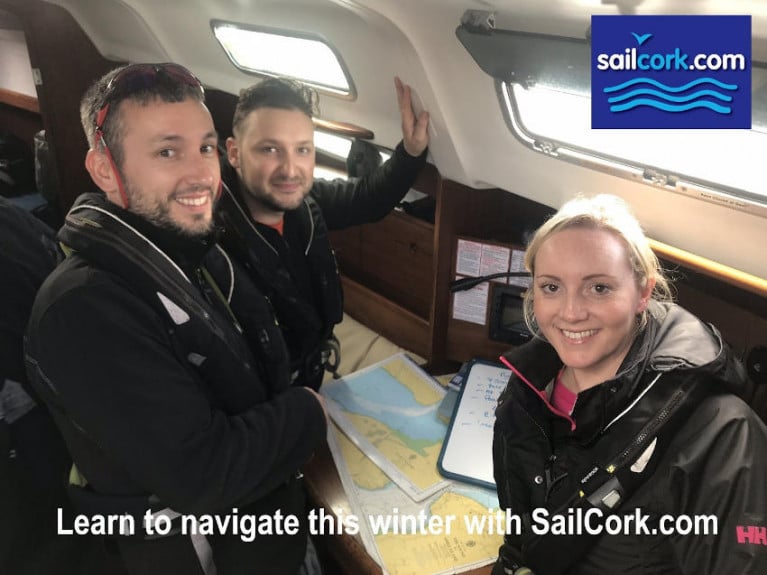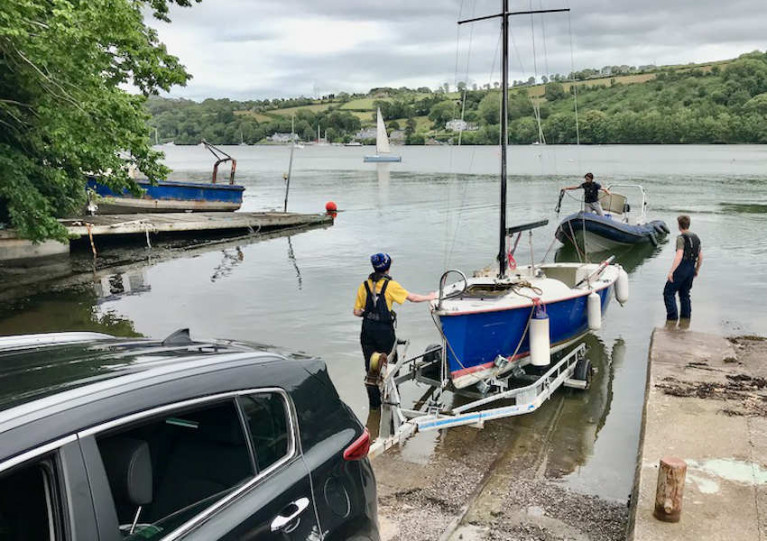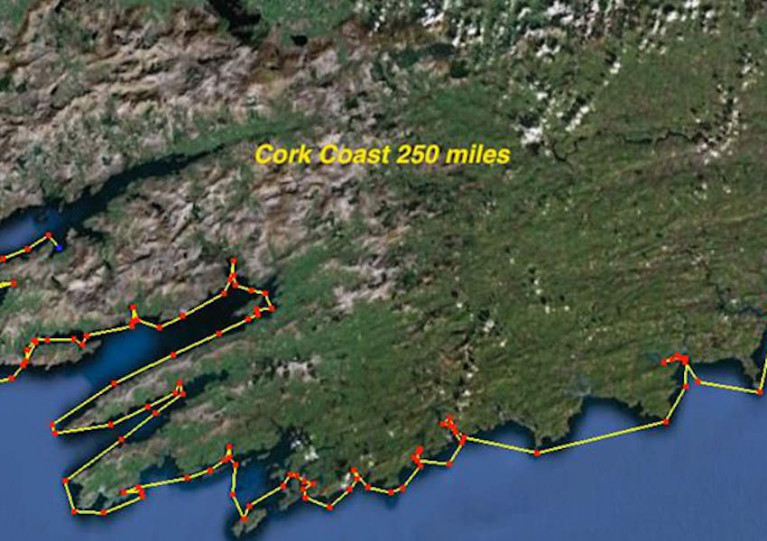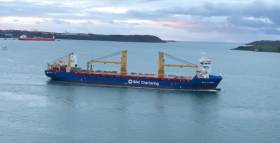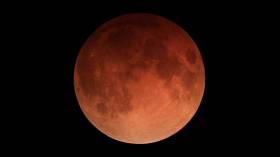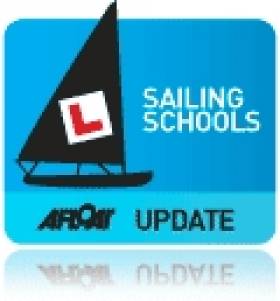Displaying items by tag: Sailcork
SailCork Navigation Courses Are Moving Online This Autumn & Winter
SailCork’s regular navigation courses are moving from the usual environs of the Royal Cork’s clubhouse to the online realm this autumn and winter.
Directed by Eddie English, the RYA Online Plus navigation courses use a mix of videos, presentations, group work and interactive tutorials via the Zoom video conferencing platform, with live access to SailCork’s team of instructors.
These elements will also be supplemented by virtual classroom sessions for the more complex parts of chart work.
For more details on the online courses on offer, see the SailCork website HERE.
Over the years Eddie, English of SailCork has trained literally hundreds of sailing instructors.
And following the coronavirus-enforced break, this week he was back at his favourite job, holding his first five-day course of the summer season with a new group of young sailors eager to become dinghy instructors.
SailCork’s calendar is once again filled with courses in yachting and powerboating, adventure camps and dinghy sailing, for sailors of all skill levels.
For more information on what’s available, visit the SailCork website HERE.
SailCork continues its new series of online pilotage courses this week with a guide to exploring the South Coast from Youghal to Mizen Head.
The Cork Harbour-based sailing school hailed its first distance-learning module, which explored Cork’s ‘Hidden Harbour’ last week, as “a huge success” and “well beyond expectations”.
Eddie English will again be at the helm for the latest course, which runs this evening and tomorrow (Wednesday 8 and Thursday 9 April) from 7.30pm and can be joined wherever you may be via Zoom video conferencing technology.
The Youghal to Mizen Head course will help you plan your voyage ‘West’ this year, as you learn about the ports of Youghal, Ballycotton, Oysterhaven, Kinsale, Courtmacsherry, Glandore, Union Hall, Castletownsend, Barlogue, Baltimore, Sherkin, Cape, Schull and Crookhaven.
Learn, too, about excellent, safe and scenic anchorages and magical islands, as SailCork promises that “Eddie will give you all his secrets!”
For those looking to explore beyond the Mizen, next week’s course — set for Wednesday 15 and Thursday 16 April — will take in Far West Cork and Kerry.
And future courses take things even further, such as the Isles of Scilly and Cornwall, the waters of Dalmatia in Croatia, and Majorca in the Mediterranean — as well as the ins and outs of yacht chartering and the ICC, and a ‘unique’ iPad navigation course.
Further details are available from the SailCork website HERE.
Double Crane Cargo Ship Sails Into Cork Harbour
Eddie English of SailCork has shared video of an unusual arrival in Cork Harbour this morning in the shape of cargo ship BBC Pearl.
The 150-metre Antiguan-flagged vessel is a heavy-lifting specialist and comes equipped with two massive cranes for the job on its open deck.
Last month the BBC Pearl was in New Orleans, and has come to Cork via Philadelphia and Antwerp. It’s currently berthed at Rushbrooke Docks across from Monkstown for anyone curious to see.
Set Off With SailCork Next Friday To View Rare Lunar Eclipse
#LunarEclipse - SailCork is organising a special yachting and powerboat trip to view next Friday’s lunar eclipse off Cork Harbour.
The longest total lunar eclipse of the 21st century will be visible in Ireland on the evening of Friday 27 July — and SailCork will be taking a lucky few passengers on board its yacht and powerboat through Cork Harbour to Roche’s Point for the best views of this rare astronomical phenomenon.
No experience is necessary for travel on either vessel, but spaces are limited for this one-time-only event — book online at SailCork.com or call 021 481 1237.
Sail Cork Sailing School Celebrates Forty Years in Business at Royal Cork Yacht Club Gala
#sailcork – On Saturday night last the Royal Cork Yacht Club was buzzing for a delightful evening of chat, fun, meeting old friends and generally having a great time writes Claire Bateman. The night also marked the official handing over of certificates to all who had successfully completed their navigation or yacht master courses which are conducted by Sailcork at the club throughout the year and Eddie and Jo English took this occasion to celebrate Sailcork's fortieth anniversary with a magnificent dinner held in Royal Cork's newly named dining room 'The Globe Restaurant'. Special guests included Royal Cork Admiral, Pat Lyons and the Admiral's Lady, Ann. From Dublin came the Commodore of the Royal St.George Yacht Club, Commodore Liam O'Rourke and joining these special guests were Commodore Adrian Tyler from Cove Sailing Club and his delightful wife Teresa.
Following the meal and with everybody in the mood to enjoy Eddie's special presentation of a digital slide show all present settled down to be treated to a history not only of Sailcork and its forerunner, The International Sailing Centre, but he also took the captivated audience right back to Cork Harbour's history of sailing from the year 1664. There were many cheers and guffaws from members of the audience who recognized themselves on the screen in photographs from many years back. Commodore O'Rourke gave a very entertaining talk on his long association with Eddie and entertained the audience greatly with tales of their exploits over the years in the Caribbean.
The very successful evening was brought to a close with a hilarious presentation by Captain Anthony Mulcahy, Port of Cork Harbour Pilot, giving a picture, no doubt highly embellished, of what it was like to work with Eddie over the years and this drew howls of laughter from the audience. Anthony 's current role with Sailcork is providing tuition in VHF communications. He certainly had no difficulty in communicating with his very receptive audience last night.
All in all a great evening was enjoyed by everyone present.
The school recently won a sailing award in Afloat's inaugural Maritime Web Awards in December.



























